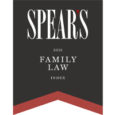Court of Protection
- Asset Freezing Injunctions
- Complex Financial Negotiations
- Complex Offshore Corporate and Trust Entities
- Court of Protection
- Divorce and Bankruptcy
- Enforceability of foreign orders
- Enforcement of English Court Orders abroad
- Financial Provision following a Foreign Divorce
- High Value Family or Business Assets
- Inheritance Problems
- International and Jurisdictional Disputes
- Pensions Issues
- Tax Consequences of Divorce or Separation
- Tracing Hidden Assets
Hughes Fowler Carruthers has considerable experience representing clients in making applications to the Court of Protection. The Court of Protection is a highly specialist court which exists to safeguard the interests of people who lack mental capacity and make certain decisions on their behalf.
This includes, for example, individuals who have suffered a severe brain injury; who have a serious congenital disorder; or who have lost capacity as a result of dementia.
The Court of Protection’s powers are derived from the Mental Capacity Act 2005 which provides the statutory principles. Provided that an individual falls within these statutory principles, and is therefore deemed to lack the capacity to make such decisions themselves, the Court of Protection has the power to make decisions on their behalf.
The Court of Protection can make one-off decisions in circumstances where the decision in question is particularly difficult, complex or contentious, or where there has been a serious disagreement between family members and care-providers about the best course of action. This includes decisions regarding the appropriate medical treatment, how and where an individual is looked after, or in relation to investment decisions and managing that person’s financial affairs.
In some circumstances, the Court of Protection can be asked to appoint and authorise a Deputy to make these sorts of decisions on an ongoing basis for an individual.
There are two types of Deputy:
- a Personal Welfare Deputy who makes decisions relating to the individual’s health and welfare; and
- a Property and Financial Affairs Deputy whose role is to manage investments, receive income, administer finances and look after the property of the individual.
Deputies are generally family members or close friends of the person who lacks capacity, but can also be a professional person such as a solicitor or accountant who has the necessary skills to take on the role. This is particularly true where the decisions relate to financial matters.
The Court of Protection also has the power to make decisions about a Lasting Power of Attorney or an Enduring Power of Attorney including in relation to its validity, the attorney’s powers, or to deal with an objection to a Lasting or Enduring Power of Attorney. Where there is an existing Power of Attorney, it may be possible to rely on this instead of seeking the appointment of a Deputy.
Hughes Fowler Carruthers has considerable experience representing clients in making applications to the Court of Protection and has detailed knowledge of the specialist rules and procedures and emotional complexity involved.









